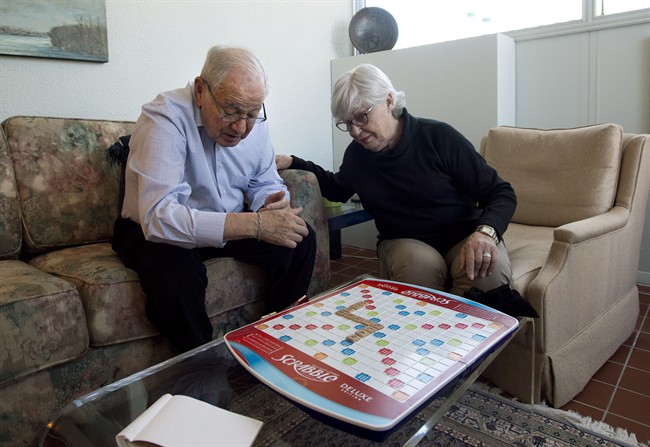TORONTO – Having a stroke is a sudden event and often shakes up the family dynamic when your loved ones turn into full-time caregivers. But what does a happy, confident caregiver look like in Canada?

A new University of Toronto study paints a picture of a women looking after her spouse and usually older, at about 58 years old. She has good physical health and the person she’s looking after is typically recovering from a severe stroke and is dealing with memory problems or cognitive impairment.
“I was most surprised that caregivers were happier when caring for a family member who survived a more severe stroke. But when a stroke is labelled mild, expectations are high and the issues are more subtle. That can cause more frustration because survivors of a mild stroke still have problems,” said Dr. Jill Cameron, lead author of the study.
READ MORE: Some Canadians misunderstanding stroke recovery process: report
Cameron and her team studied 399 family members who were looking after stroke survivors. For two years, the researchers followed up with the people who had turned into full-time caregivers.
Caregivers generally don’t get much time to prepare since stroke survivors could leave hospital and head home within just days or weeks.
READ MORE: 5 lifestyle changes to improve your heart’s health
Cameron said older caregivers tend to handle the situation better because they could be retired or working part-time.
“That might be one reason older caregivers are the most content,” she said. “They’re most likely to be retired and less likely to have to juggle responsibilities of a job and children along with providing post-stroke care.”
The research suggested happier caregivers also kept up with their own hobbies, and activities. They carved out a space for their individual time, which is key.
The study builds on previous research that suggested stroke patients’ health outcomes are influenced by their caregivers’ outlook. In that case, University of Kentucky researchers said stroke survivors and their spouse caregivers need to be treated together, “as a unit, not individually.”
“When the spouse has a high level of self-esteem and optimism, the patient has lower levels of depression,” said study author Dr. Misook Chung.
READ MORE: Stroke patients’ health outcomes influenced by spouse’s optimism
Yet the changes in a spouse caregiver’s outlook and its impact on the patient’s depression are often ignored, Chung said.
“Spouses often assist the survivor in their own care, while also trying to adapt to the changes in their own lives as a result of providing care,” said Chung.
They end up quitting their jobs, taking on their spouses’ responsibilities to keep the house running, or they’re juggling their kids too.
Cameron’s findings were published Thursday afternoon in the American Heart Association journal Stroke.
carmen.chai@globalnews.ca
Follow @Carmen_Chai




Comments